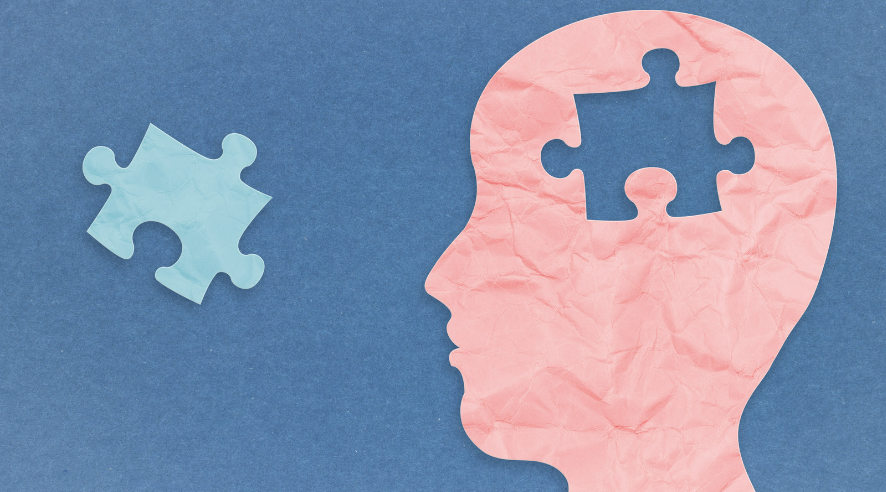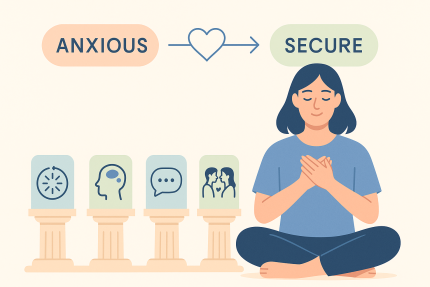Unlocking the Secrets to Good Mental Health: A Comprehensive Guide
- 4 February 2023

Mental health is an essential aspect of our overall wellbeing, and it affects our emotions, thoughts, and behaviors. However, due to the stigma surrounding mental health, people often overlook or downplay its significance. This can have severe consequences on one's mental and physical health, leading to chronic illnesses and even suicide.
To achieve good mental health, you must prioritize self-care and make a conscious effort to cultivate healthy habits. In this article, we will explore the key factors that contribute to good mental health and provide practical tips to help you unlock the secrets to a happy and healthy mind.
Exercise: The Miracle Cure
One of the best ways to promote good mental health is through regular exercise. Exercise has been scientifically proven to reduce symptoms of depression and anxiety, boost self-esteem, and improve cognitive function. It also increases the production of endorphins, which are natural mood-boosters. Even a simple 30-minute walk can make a significant difference in your mental health.
Mindfulness: The Art of Being Present
Mindfulness is the practice of being present and fully engaged in the moment. It can help you reduce stress, anxiety, and negative thoughts. Mindfulness involves paying attention to your thoughts and feelings without judgment, which can help you develop a more positive outlook on life. Try practicing mindfulness meditation for a few minutes each day to reduce stress and improve your mental health.
Sleep: The Foundation of Mental Health
Getting enough sleep is crucial for good mental health. Sleep deprivation can lead to irritability, mood swings, and cognitive impairment. Make sure to prioritize your sleep and create a bedtime routine that works for you. Avoid using electronic devices before bed, and try to stick to a consistent sleep schedule.
Social Connection: The Key to Happiness
Humans are social creatures, and social connection is essential for good mental health. Strong social connections can help reduce stress, anxiety, and depression. Make an effort to connect with others, whether it's through joining a group or volunteering in your community. You can also try reaching out to a friend or family member that you haven't spoken to in a while.
Therapy: The Power of Professional Help
If you're struggling with your mental health, seeking professional help is a powerful tool. Therapy can help you develop coping skills, change negative thought patterns, and address underlying mental health issues. There are various types of therapy, including cognitive-behavioral therapy, which is an evidence-based treatment for depression and anxiety.
Nutrition: The Fuel for the Mind
The food we eat has a direct impact on our mental health. A diet rich in whole grains, fruits, vegetables, and lean proteins can improve our mood and energy levels. On the other hand, a diet high in processed and sugary foods can lead to depression and anxiety. To support good mental health, make sure to prioritize a healthy diet that nourishes your mind and body.
Self-Care: The Key to Stress Reduction
Stress is a leading cause of mental health issues, and self-care is a powerful tool to combat it. Self-care can include anything that promotes relaxation and reduces stress, such as taking a bath, reading a book, or practicing yoga. Make self-care a priority in your life and take time to do activities that bring you joy and relaxation.
Gratitude: The Attitude of Happiness
Gratitude is a powerful tool for mental health, as it helps us focus on the positive aspects of our lives. By practicing gratitude, we can shift our mindset from negativity to positivity and improve our overall well-being. Try writing down three things you're grateful for each day, and notice the positive impact it has on your mental health.
Boundaries: The Power of Saying No
Setting healthy boundaries is essential for good mental health, as it helps us protect our time and energy. Learn to say no to commitments that don't serve your well-being, and make sure to prioritize your own needs. This can help you reduce stress and maintain a healthy work-life balance.
Mindset: The Power of Positive Thinking
Our thoughts have a direct impact on our mental health, and cultivating a positive mindset is essential for good mental health. Practice positive self-talk, and try to reframe negative thoughts into positive ones. By focusing on the positive aspects of our lives, we can improve our mood and overall well-being.
In conclusion, good mental health is essential for our overall wellbeing. By prioritizing self-care and adopting healthy habits, you can improve your mental health and lead a happier and more fulfilling life. Remember to exercise regularly, practice mindfulness, prioritize sleep, connect with others, and seek professional help if needed. With these tools, you can unlock the secrets to good mental health and live your best life.




